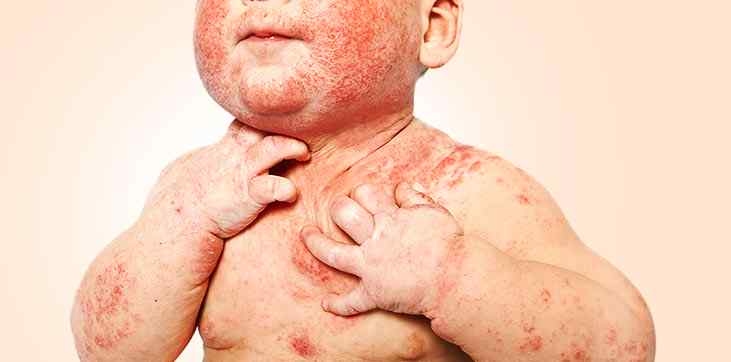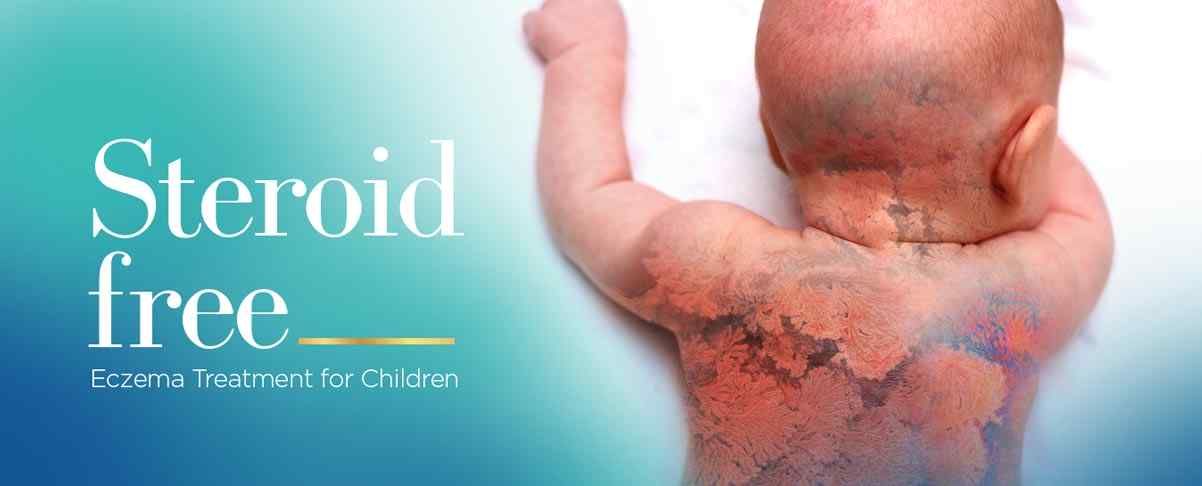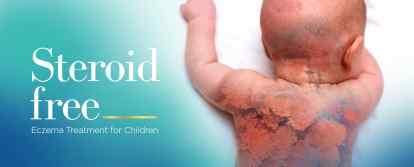Vitamin B12 Cream: A Natural, Non-Steroid Remedy for Childhood Eczema

When your baby is born, they usually have this pristine skin that is touchably soft and oh-so enjoyable to snuggle. However, many babies develop a skin condition within the first six months of life that can generate a lot of concern for parents. You may notice severe redness, unexplainable rashes, or even scales developing on the baby's face or scalp. Even toddlers and young, school-age children can develop similar issues. This skin condition is known as eczema, and, while common, seeing your child struggle with any irritating skin condition can be worrisome.

Many parents have no idea what is going on when eczema appears, sometimes out of nowhere. Further, once the eczema is diagnosed, and you find out there is no cure, the situation can bring about even more anxiety. Will your child deal with this problem for the rest of their life? Is your baby uncomfortable? Have you done something wrong? These concerns are understandable, but arming yourself with knowledge can truly help, especially with promising treatment options available like vitamin B12 cream.
According to the National Eczema Foundation, atopic dermatitis (the most common form of eczema) affects as many as 13 percent of children under 18 in the United States. Even though eczema can affect people of all ages, the problem is more prevalent among babies and children and the issue may get better with age. The majority of children with eczema will develop problems by five years old. However, eczema in babies often occurs within the first six months after birth.
Eczema symptoms can range depending on where on the body the irritation is located and even the age of the child. The inflammatory skin condition can show up in different ways, sometimes depending on the age of the child. For example, eczema on baby may be on the cheeks, scalp, or face, while eczema at 6 to 12 months old may show up on elbows and the knees. Some of the most general symptoms include:
- Dry, flaky skin
- Itching
- Redness
- A rash made up of small red-bumps
- Oily scales on the skin
- Bumps that seem to leak and then crust
Eczema symptoms in babies can show up as dry patches on baby skin or eczema on face areas, such as around the mouth, chin, and lips. Cradle cap, which is specific to the baby's scalp and usually shows up as scales, is also a form of eczema. As the baby gets older, points of irritation may be more likely near folds of the skin, such as around the bends of the knees and wrists, behind the ears, or in the bend of the elbow.
The exact cause of eczema is unknown, but researchers have pointed out several factors that may contribute to the risk of a child developing the skin condition. For example, children of parents with a history of hay fever, asthma, or atopic dermatitis can be more at risk. Therefore, genes are thought to play a role in the condition. Those with eczema also tend to have heightened nitric oxide levels in the body.
Most children do not show signs of atopic dermatitis until they are exposed to some kind of environmental trigger that seems to trigger the immune system to react; skin cells stop acting normally and instead flare up as if they are aggravated.
Some of the most common eczema triggers in babies and children include:
- Heat
- Dry air that leads to dry skin
- Sweating or excess moisture
- Exposure to irritants (e.g. fragrances, soaps, certain materials)
- Exposure to allergens (e.g. pollen, pet dander, dust)
- Stress or emotional distress
Sometimes, controlling eczema triggers for babies and young children can be difficult. For instance, eczema often presents in babies around the mouth or on the chin because of saliva from drooling being such an ongoing thing. However, once you point out what could be triggering a flare-up, you can better control your child's symptoms. Maybe you recognize more irritation after your child is out in the heat, for example. Or, perhaps your toddler has more flare-ups in the winter when the air is dry in your home.
Even though there is no cure for eczema, doing what you can to control flare-ups is really important as a parent of a child with atopic dermatitis or any form of eczema. Some forms of eczema can be especially problematic and uncomfortable for your child.
For example, 30 percent of children who have atopic dermatitis experience problems with their sleep at least five nights every week. Sleep disruptions can cause behavior issues like irritability and the inability to focus at school. Children in school who have eczema may also be more prone to depression or anxiety and may even withdraw from the children around them because they are being bullied or teased.
Eczema in babies can be just as concerning. Your baby can't tell you when their skin feels itchy or if their discomfort is waking them up at night. You may notice your infant is waking up several times through the night, is generally fussy and sleepy, or even seems restless or becomes upset for no apparent reason. These problems can no doubt have you on the search for "baby itchy skin remedies" online in desperation to soothe an infant and get some much-needed rest for yourself.
As a parent, it is always a good idea to work with your child's doctor to narrow down potential triggers of flare-ups and try medicinal or over-the-counter solutions that may soothe symptoms. Doing so can make sure your child is comfortable in their skin, both literally and metaphorically.
Treatment for eczema most often involves a combination of controlling triggers in the child's environment and using over-the-counter and prescribed medications to soothe symptoms. Treatment can vary depending on the severity of the condition and the age of the child. For example, toddler eczema treatment may involve oral medications while an infant may only be a good candidate for a baby eczema cream. Here is a closer look at some of the most common types of treatments for eczema.
OTC Topical Treatment for Eczema
OTC eczema treatment for children may be something as simple as a fragrance-free moisturizer, salve, or ointment. Moisturizers can be used several times a day to keep irritated skin moist but are especially good to use after your baby or child takes a bath.
Another topical OTC product your doctor may recommend includes topical hydrocortisone cream. While topical hydrocortisone cream can help with itching, this medication is never a long-term solution and may not be safe for use on all children, especially infants. Side effects of topical hydrocortisone cream can include burning, skin discoloration, and even exacerbated dryness that will only worsen the eczema symptoms.
Prescribed Oral Medications for Eczema
Oral medications may be prescribed for some children with more severe forms of eczema. The doctor may prescribe anti-allergy medicine, which can deter itching for some children. Antibiotics may be prescribed if the doctor suspects the skin is infected, and rarely a doctor may recommend corticosteroid medications that suppress immune system reactions and may lessen symptoms temporarily.
Prescribed Topical Treatment for Eczema
Some topical treatments for eczema may only be available with a prescription. Your doctor may recommend something like an antibiotic topical ointment for skin infections associated with eczema, for example. Or, they may prescribe a prescription-strength corticosteroid cream to help with inflammation. Unfortunately, one of the drawbacks of topical prescription medications for children with eczema is that children can be more at risk of adverse reactions.
Topical vitamin B12 cream may be a solution to consider for treating eczema in babies and children. Vitamin B12 is thought to help with eczema symptoms by reducing the production of nitric oxide.
In a double-blind, placebo-controlled study, 21 children between 6 months old and 18 years old with eczema were treated with topical B12 or a placebo for four weeks. The children treated with B12 experienced significant improvement in their eczema symptoms, while those who were given a placebo saw little to no improvement.
In another study performed in 2005, patients were given topical B12 to apply to inflamed areas on one side of the body and a placebo to the other side of the body for eight weeks. The majority of patients experienced either good or very good improvement of symptoms on the side of the body where they applied B12. As a side note, all 49 patients tolerated the treatment well.
Even though vitamin B12 cream is thought to offer a good option for children with eczema, the medication is not available commercially. Therefore, the solution must be created by a compounding pharmacy. If you are ready to find a low-risk, effective option to soothe eczema symptoms for your infant or child, please reach out to us at Harbor Compounding Pharmacy so we can help.



